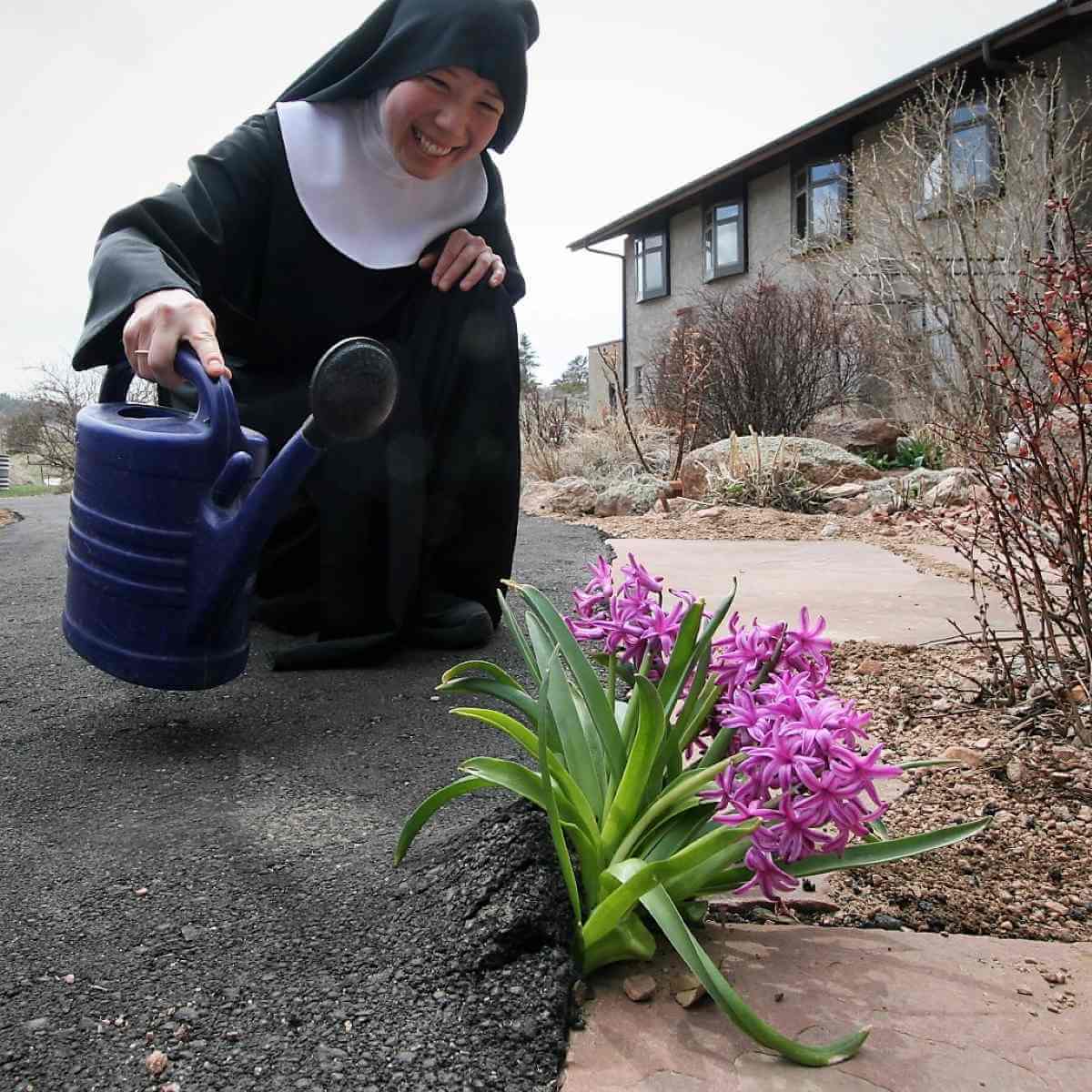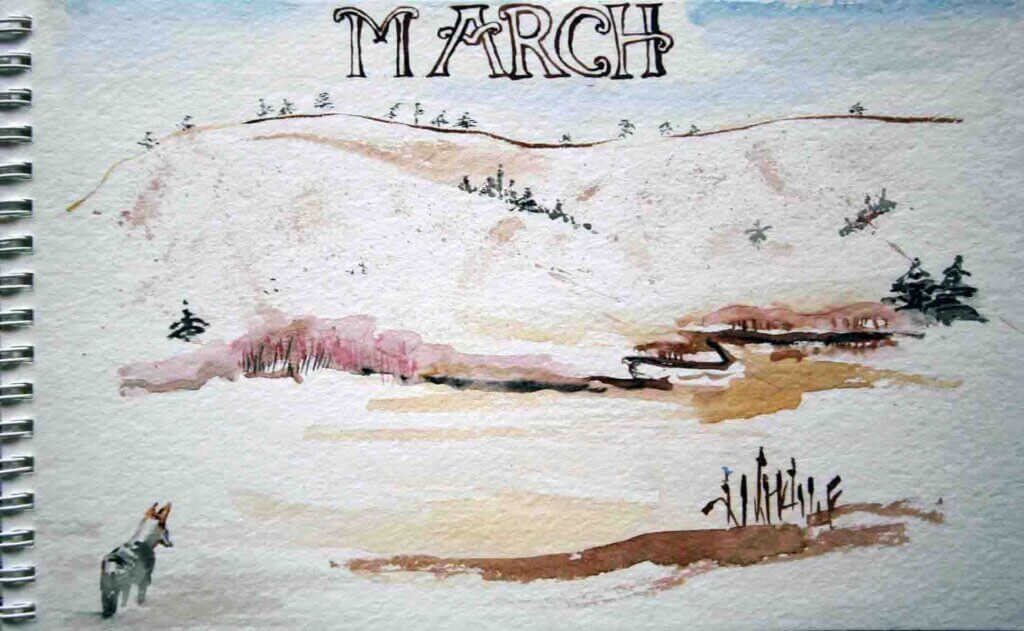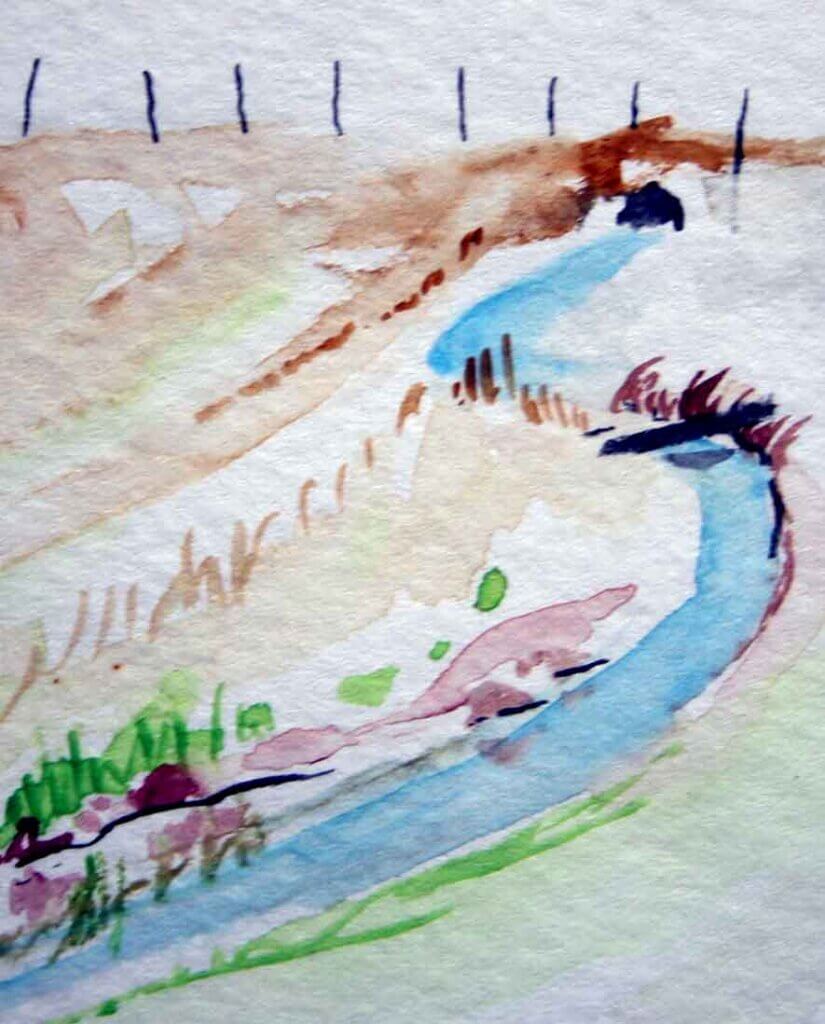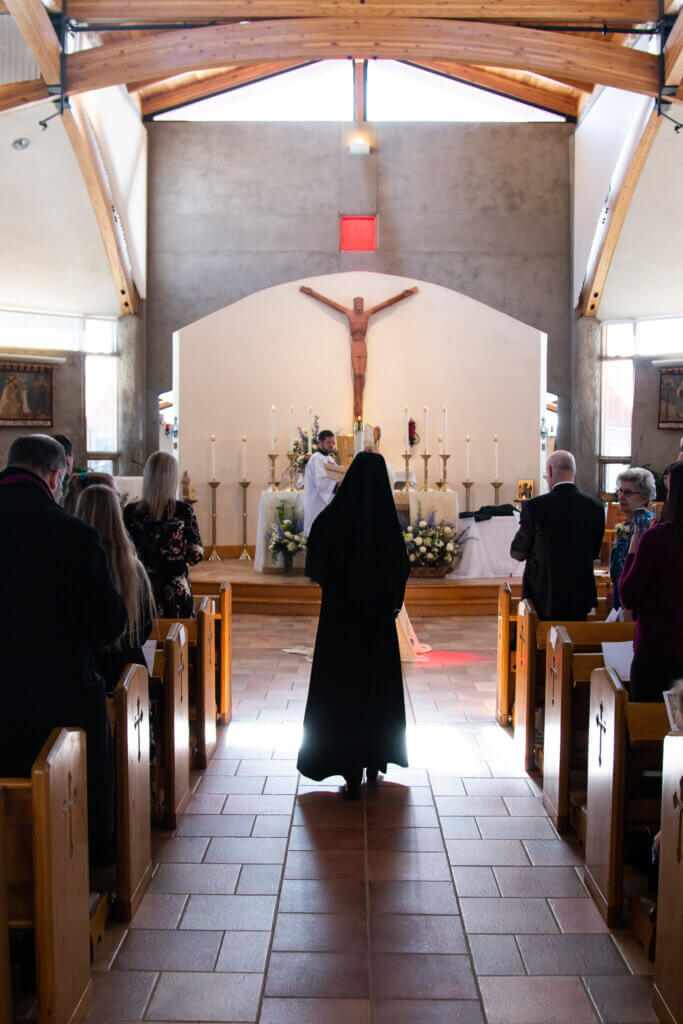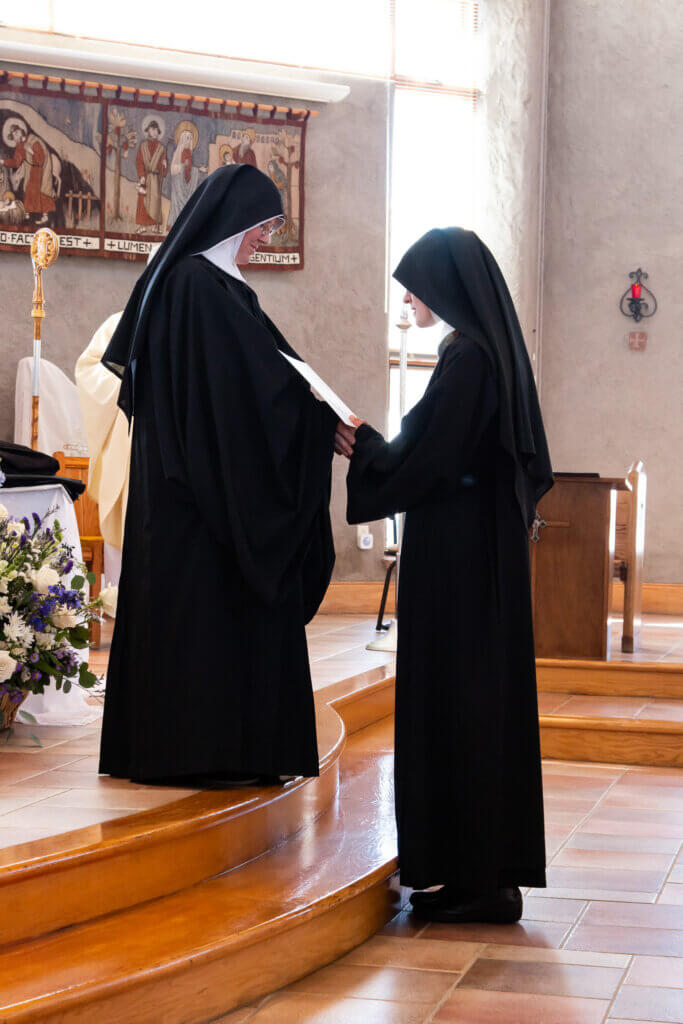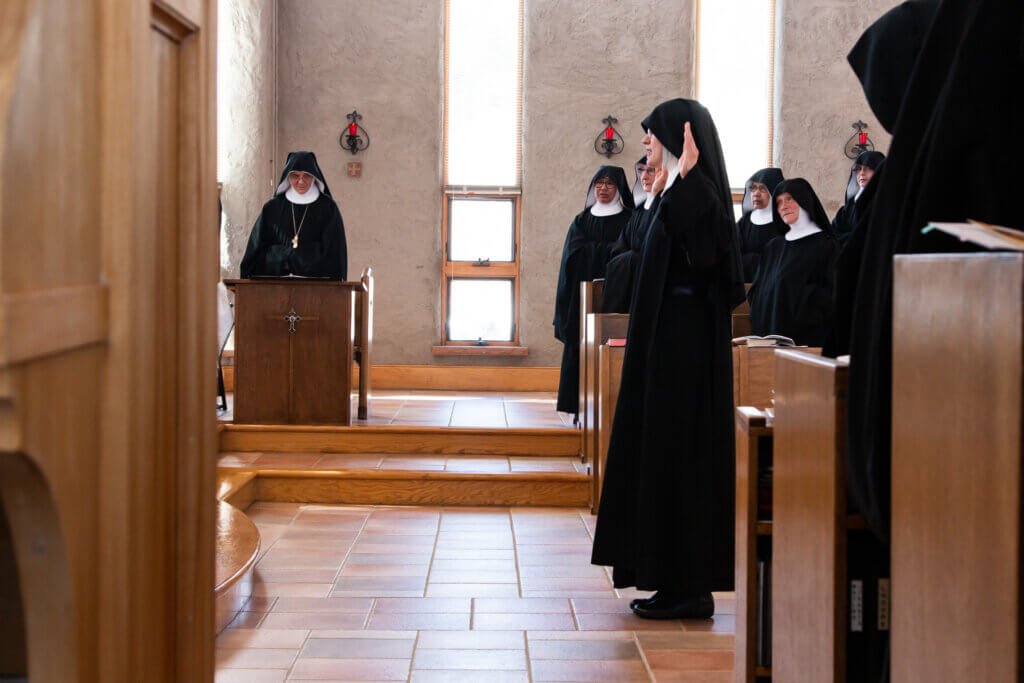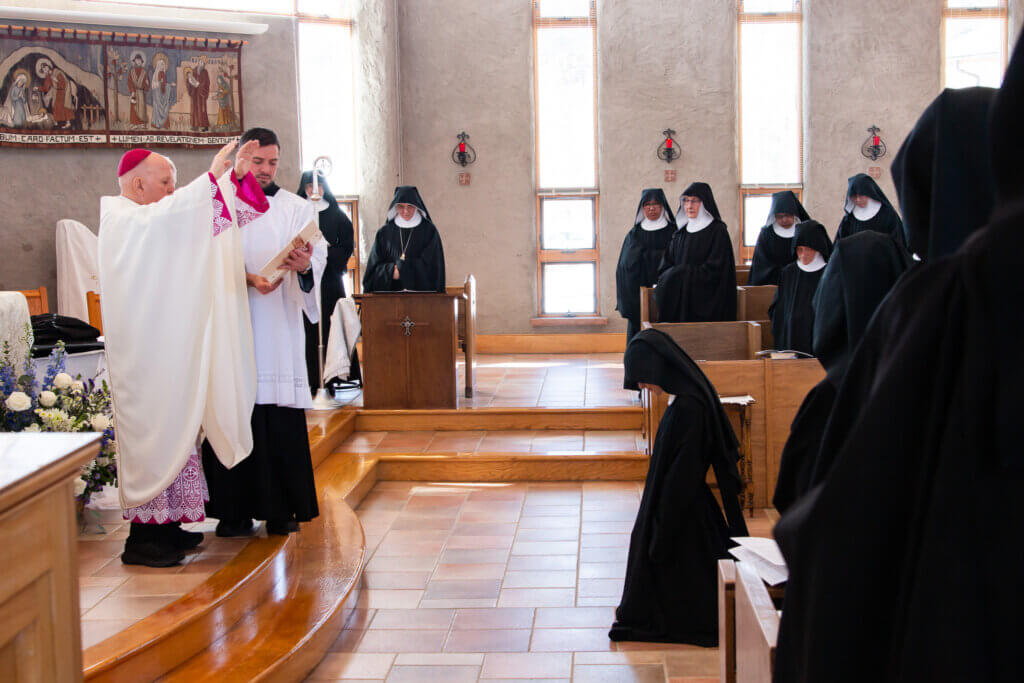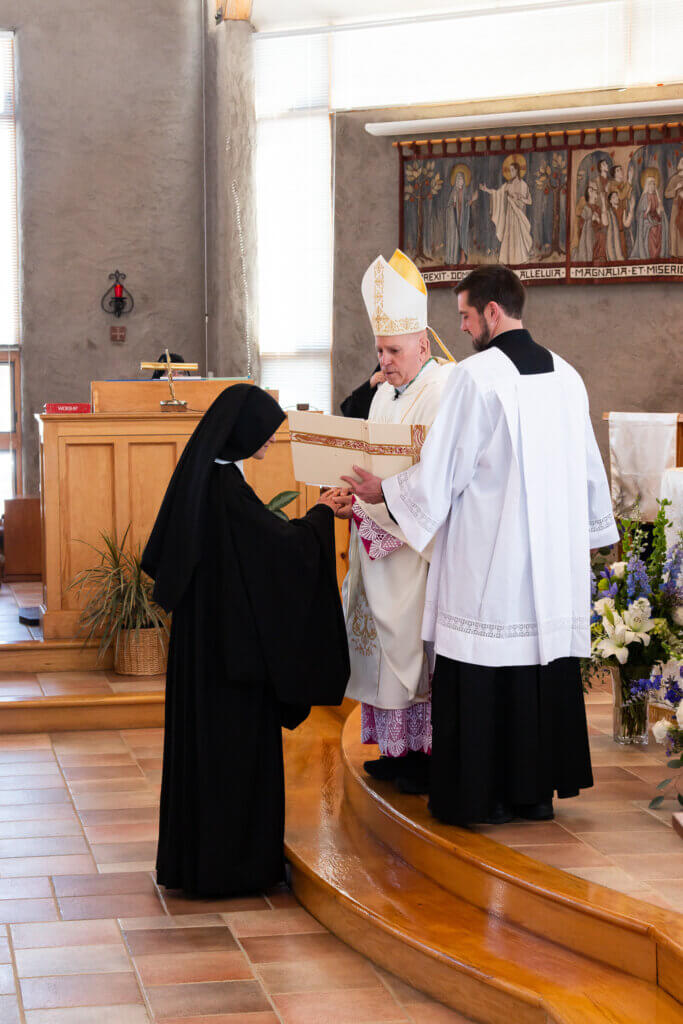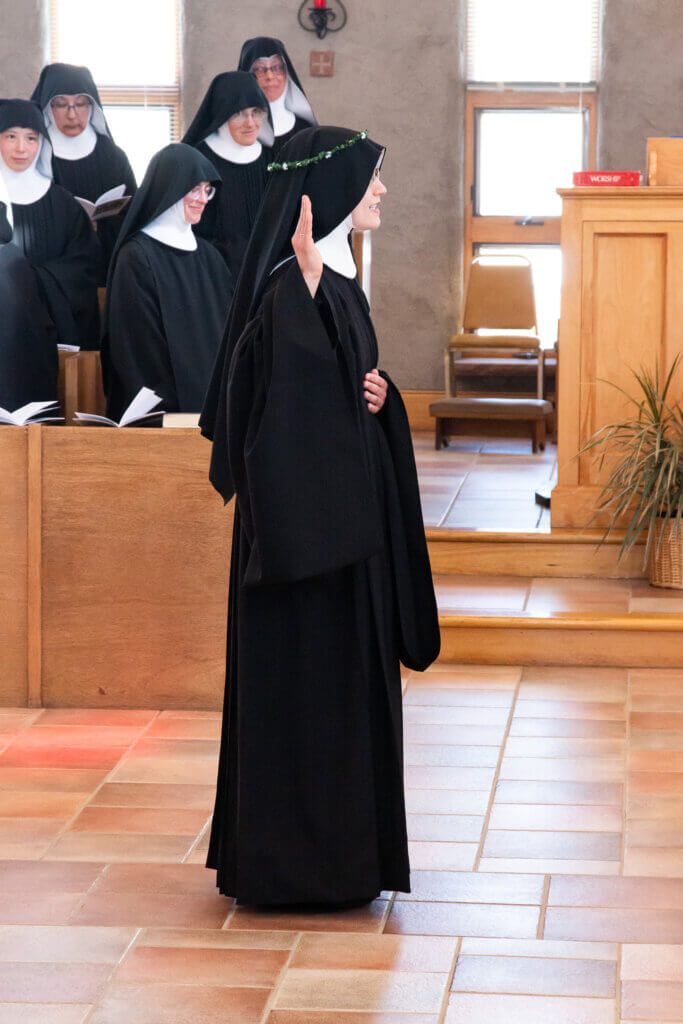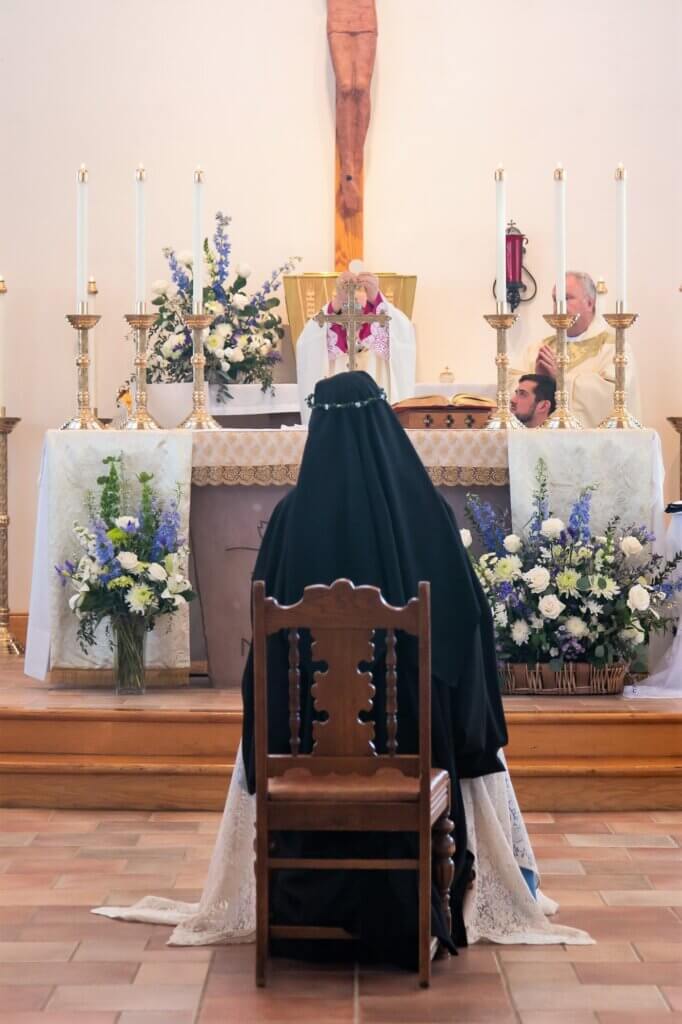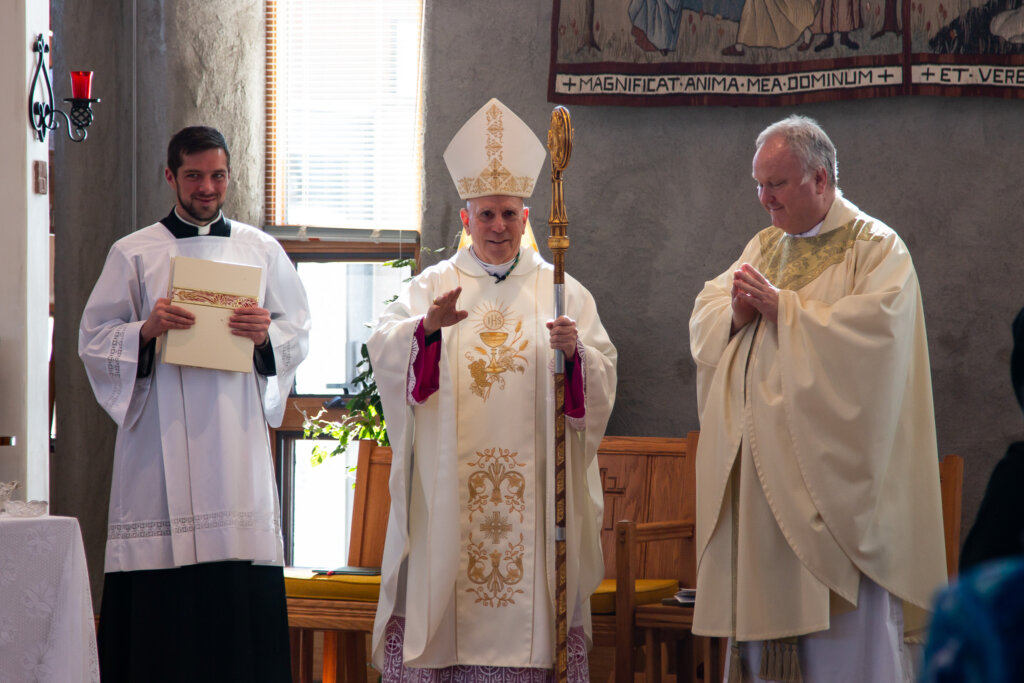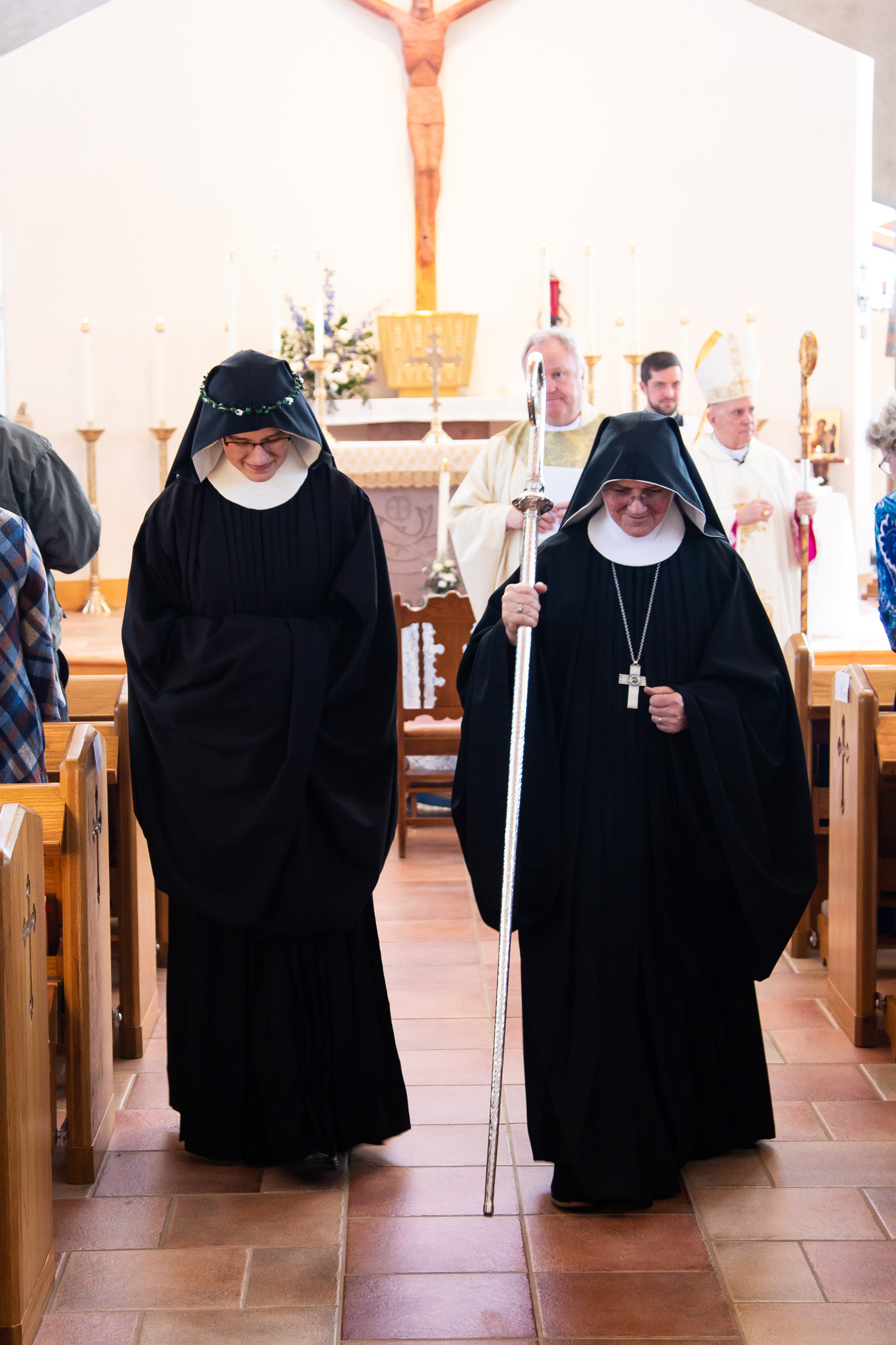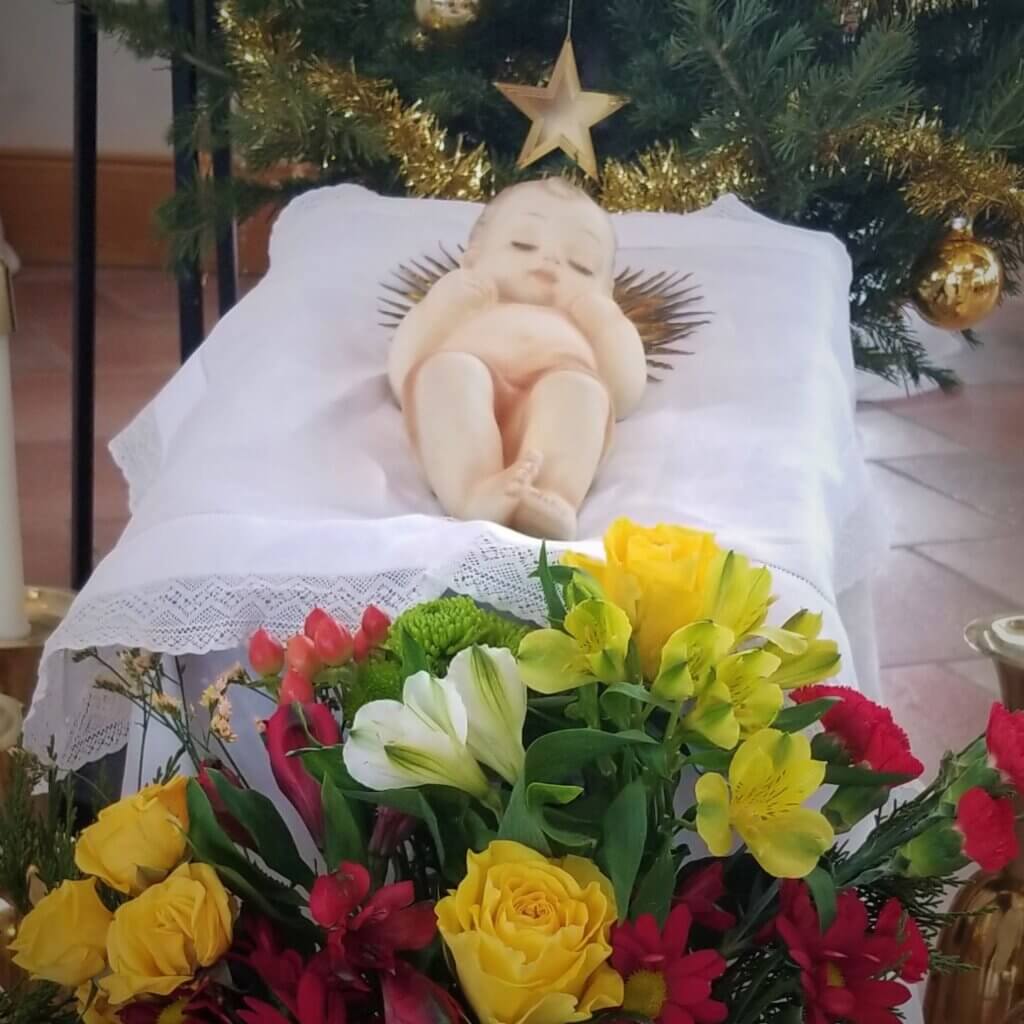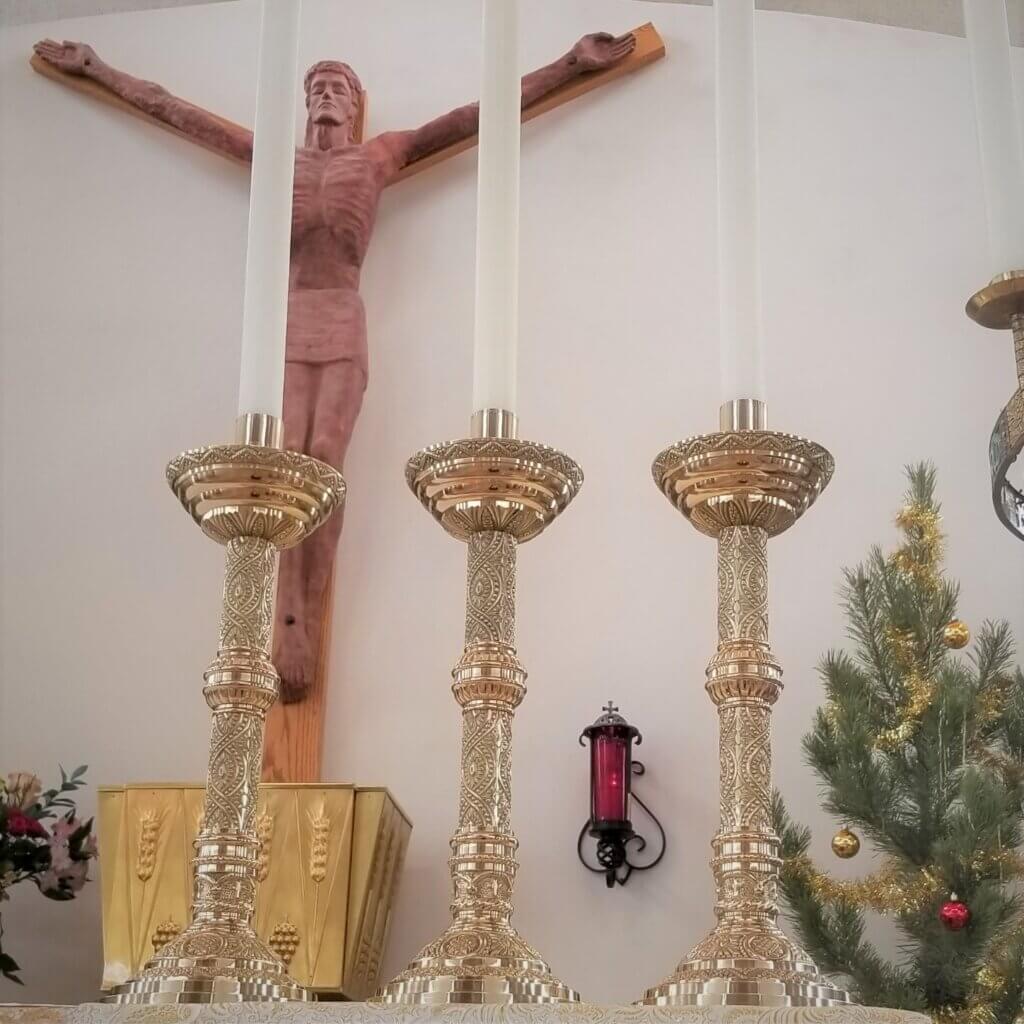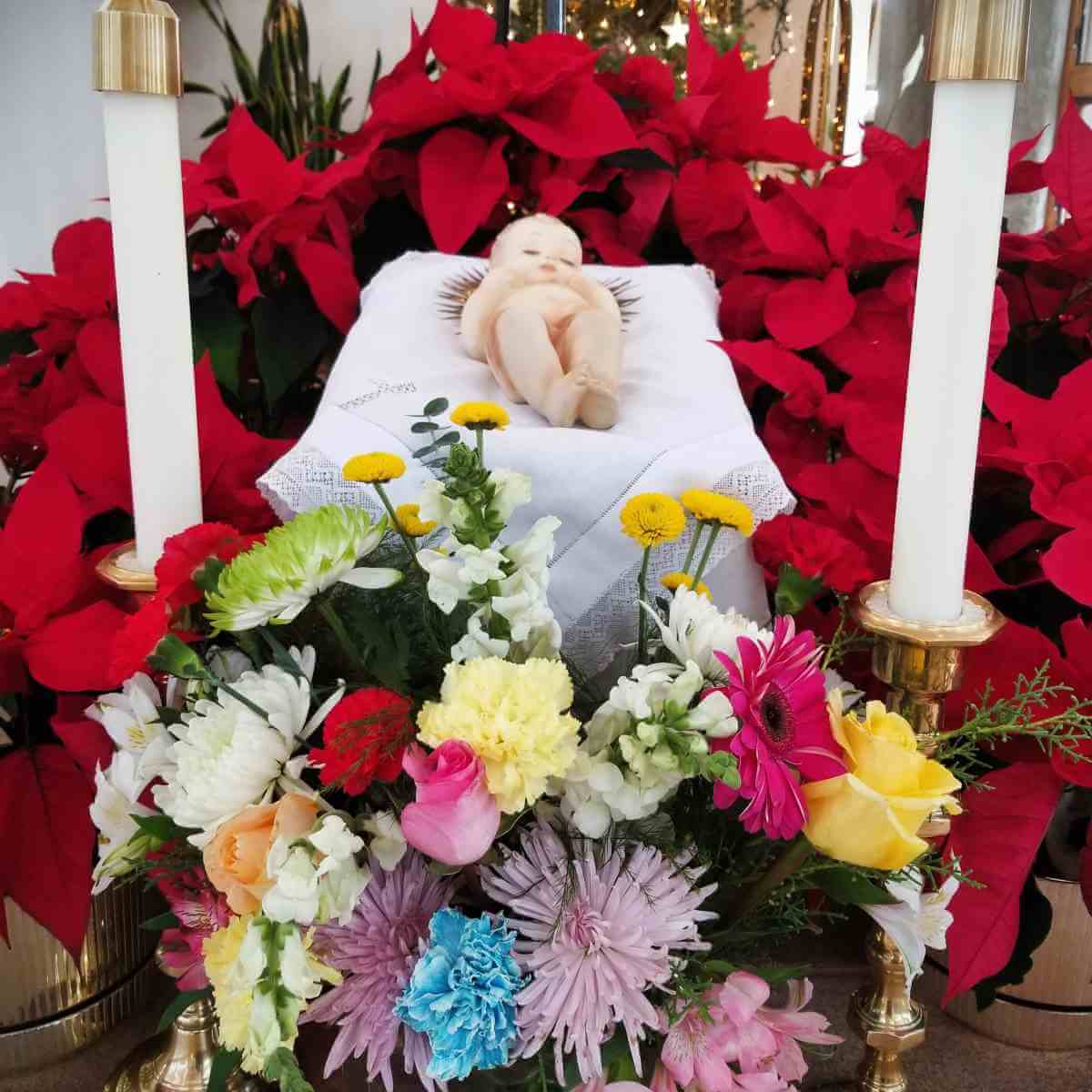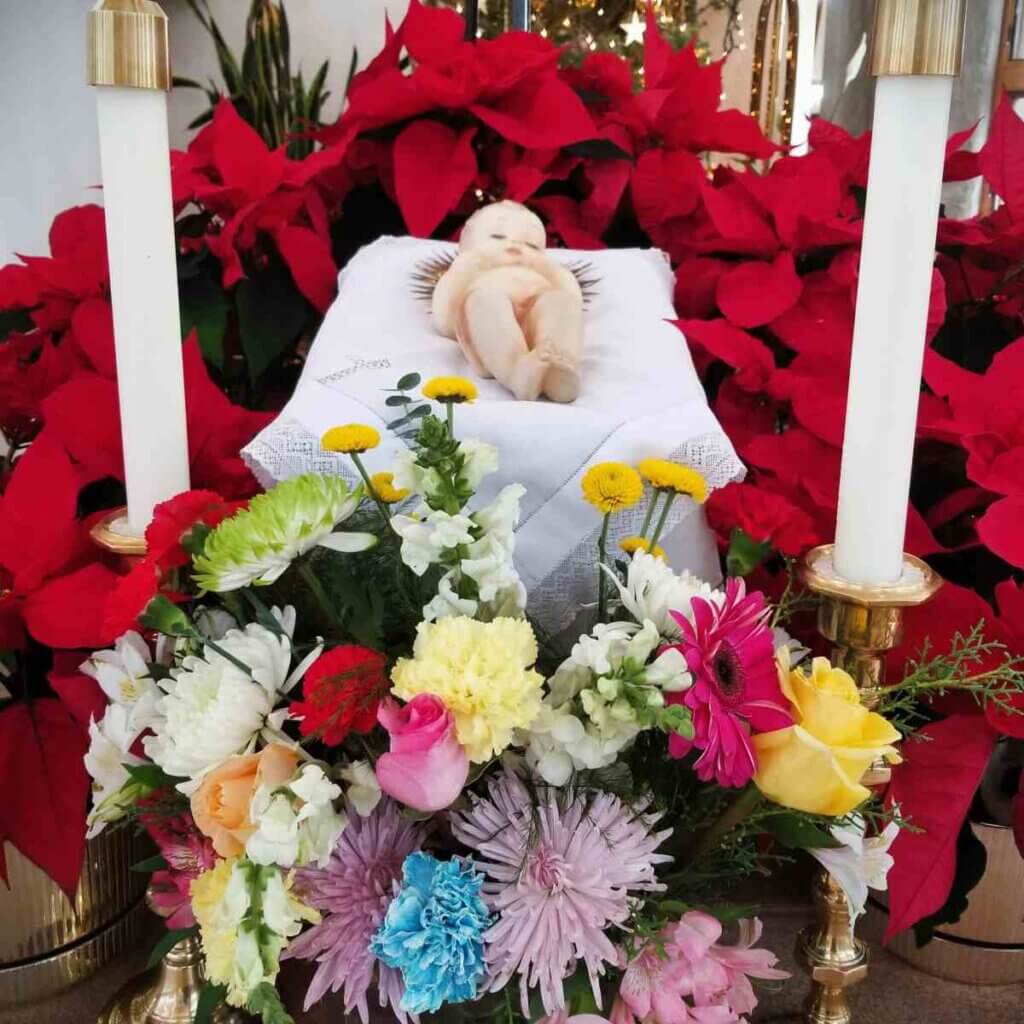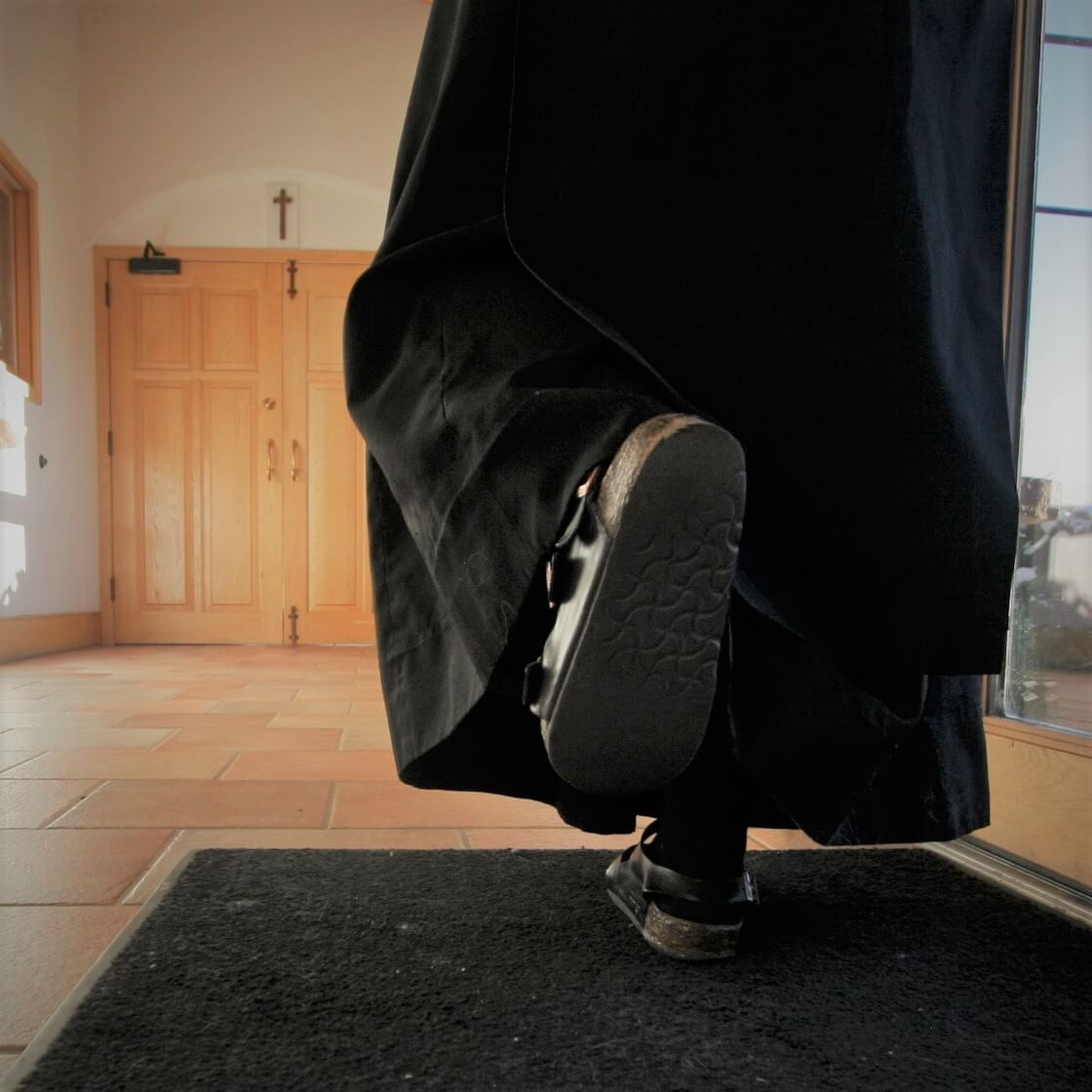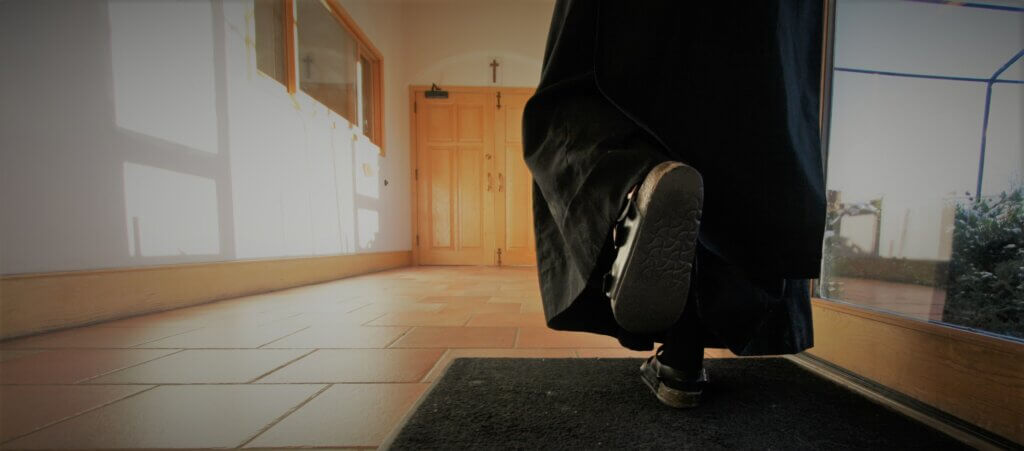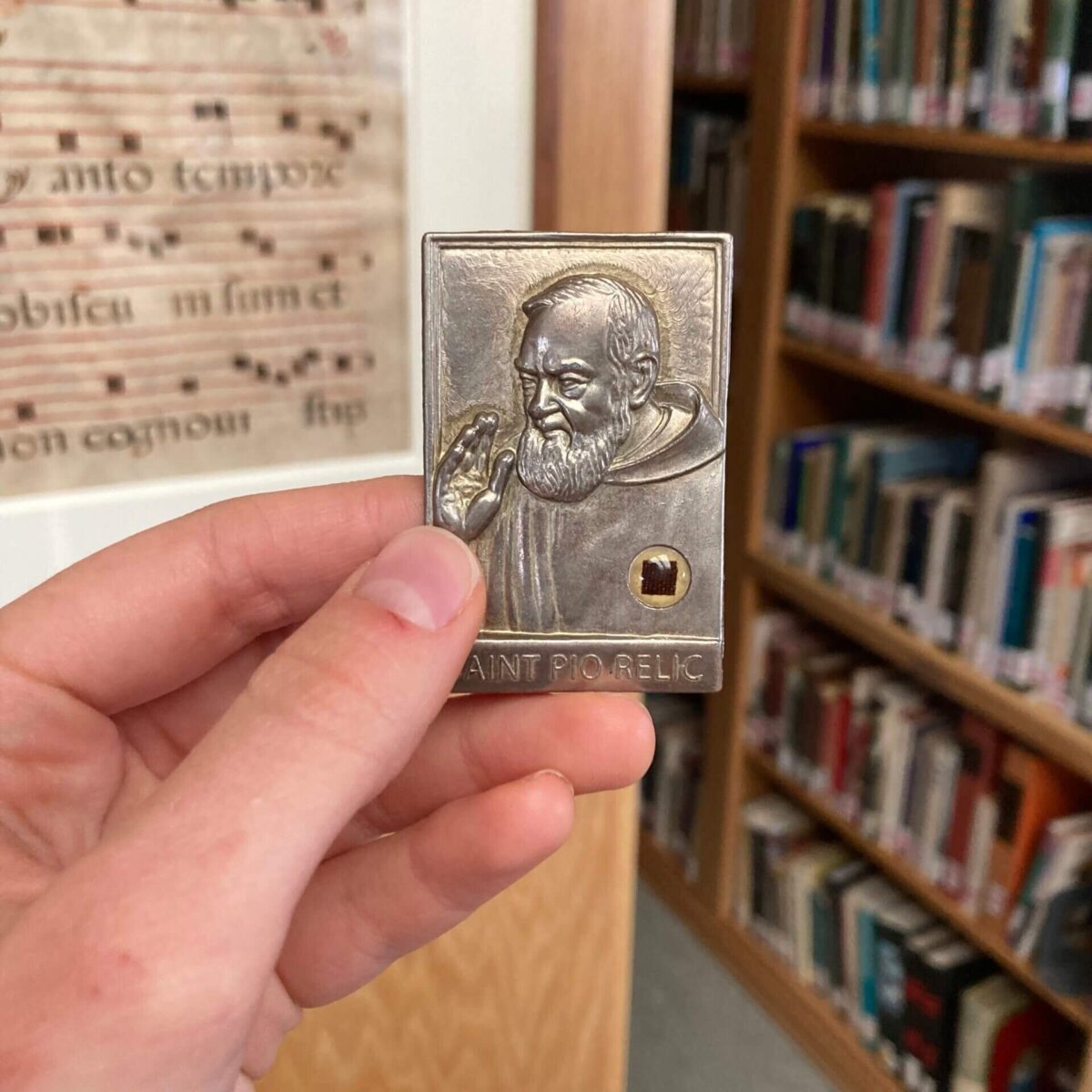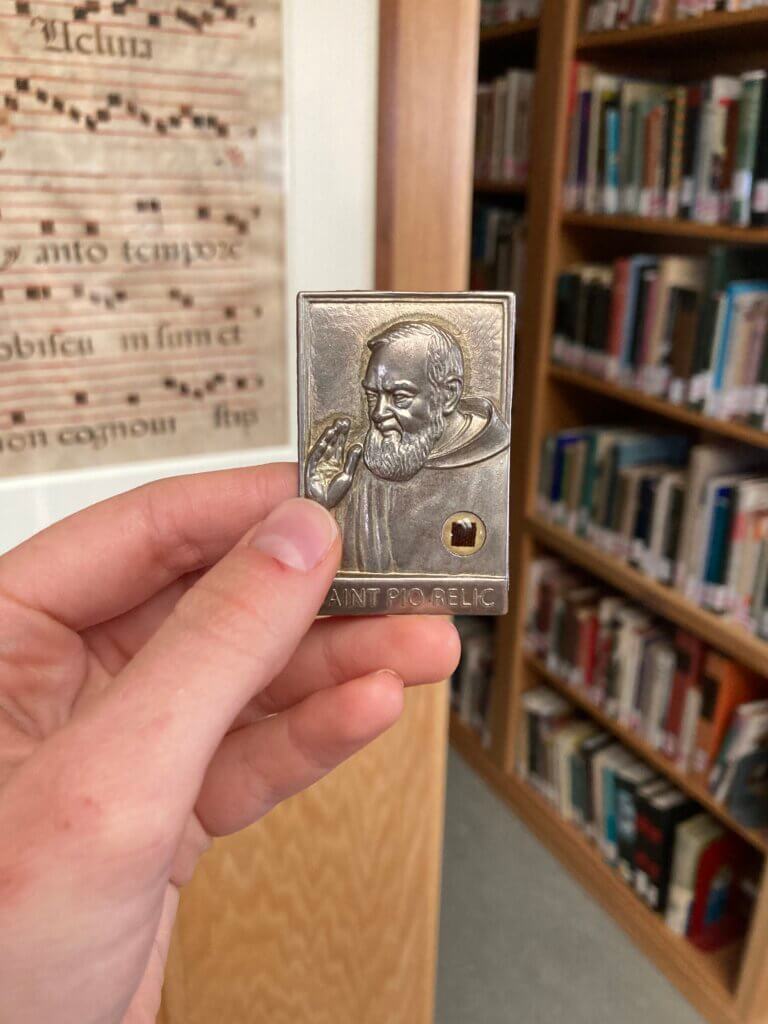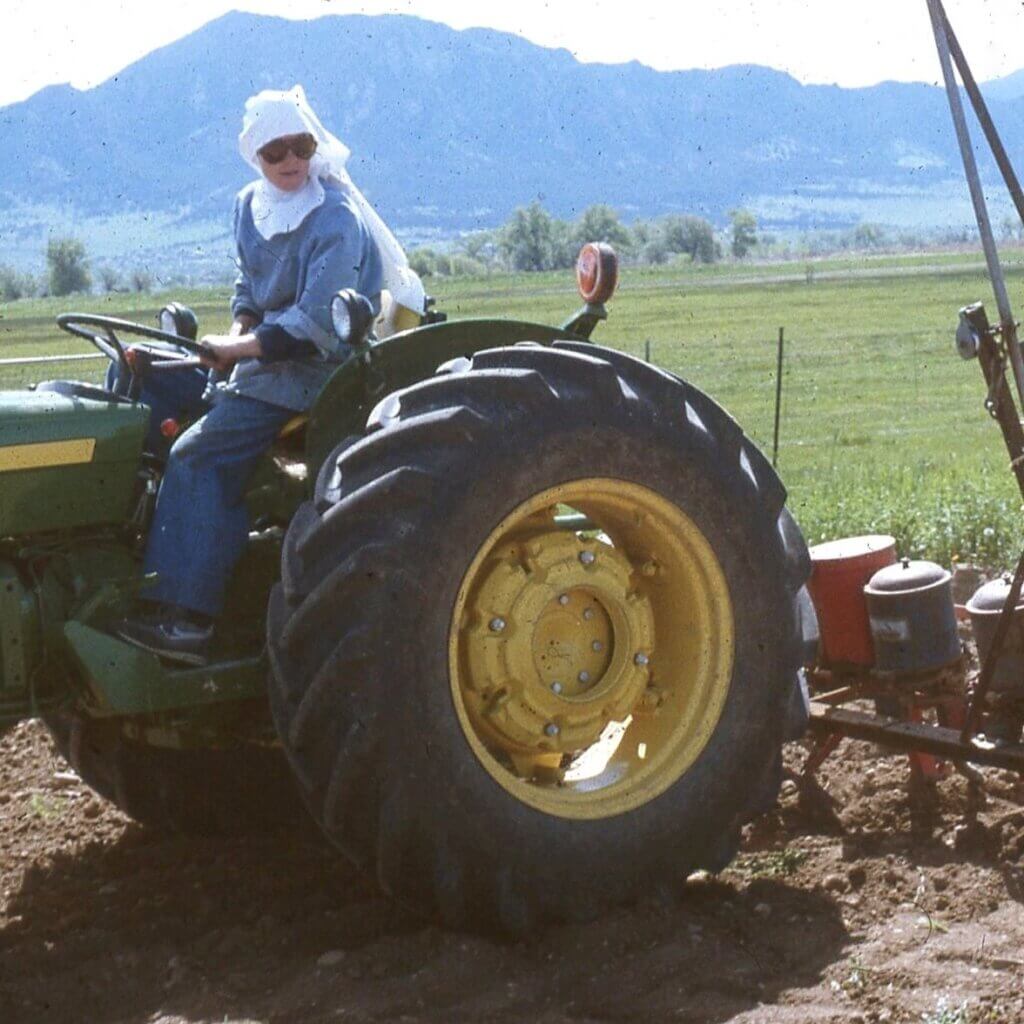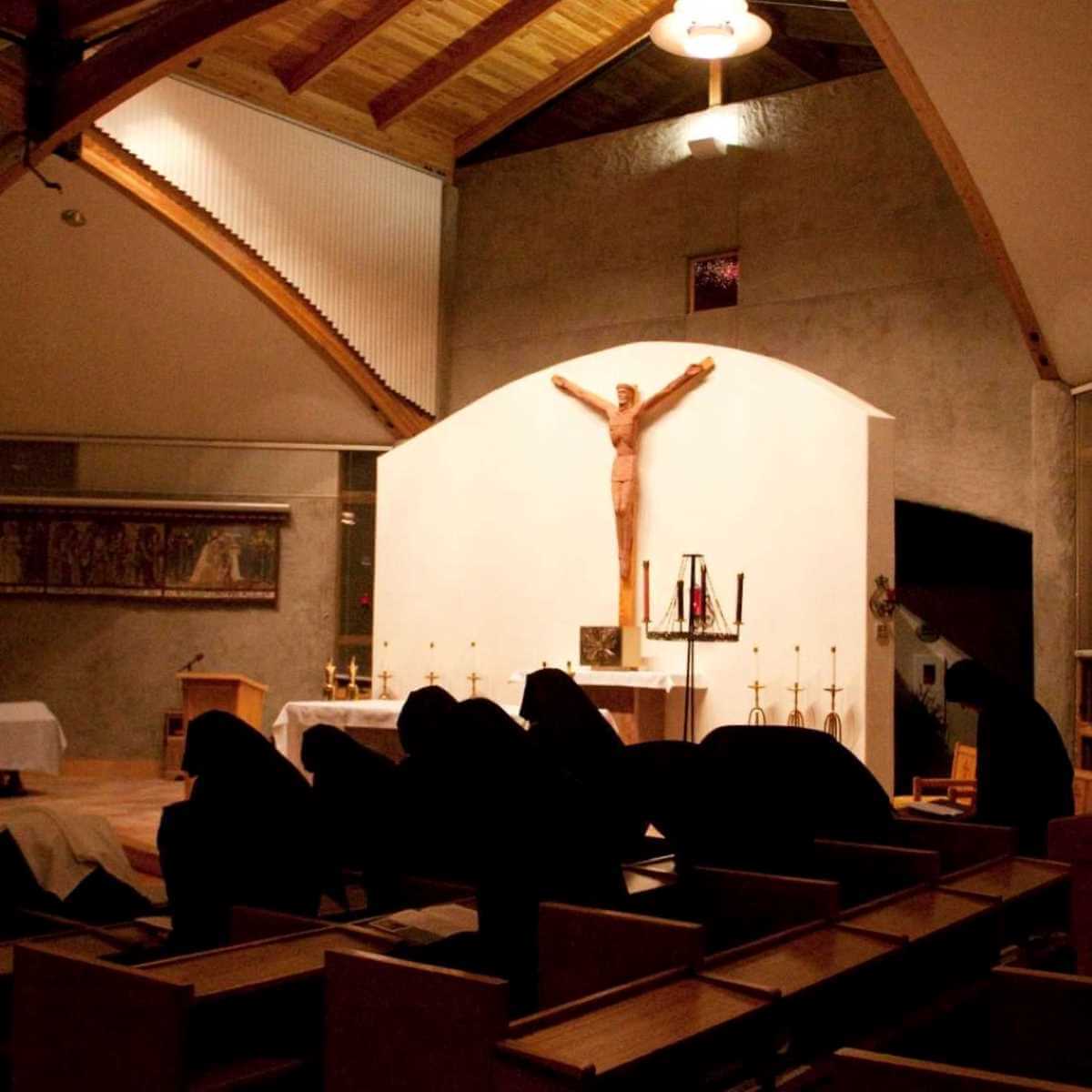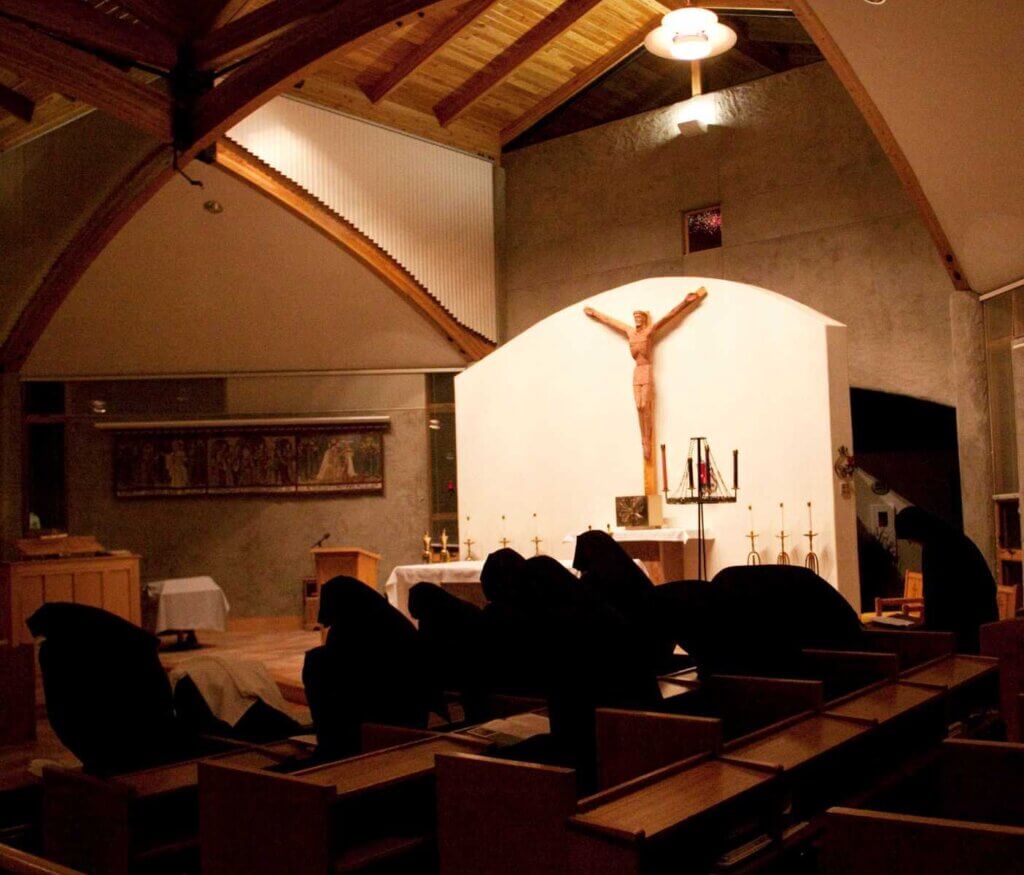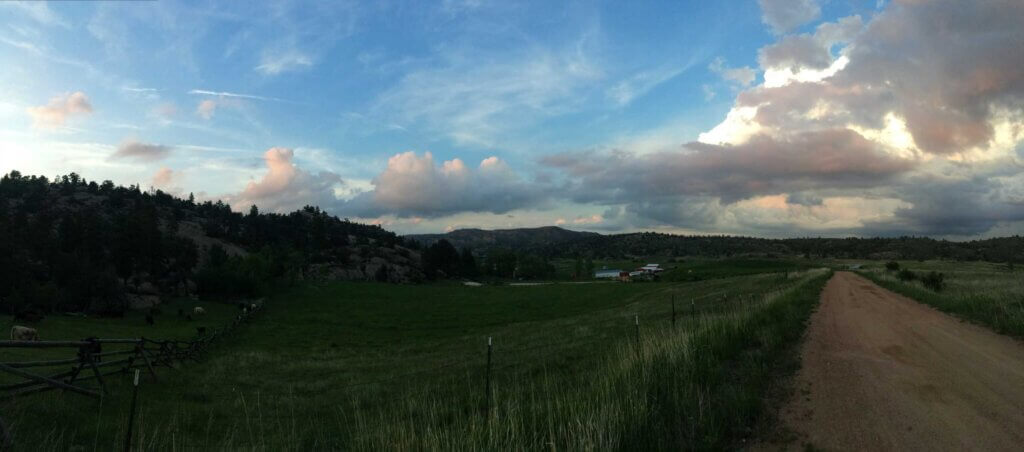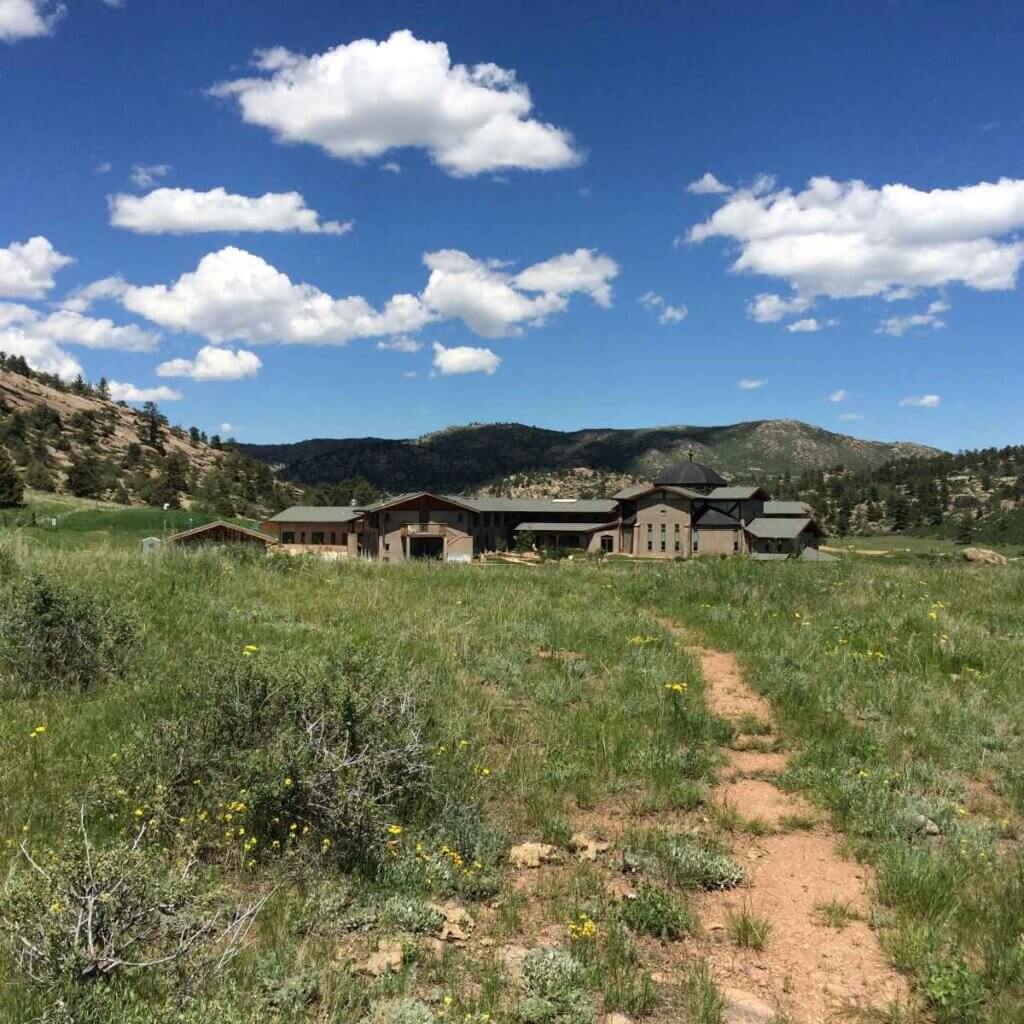A reflection by Mother Maria-Michael Newe, OSB
I love how the first thing out of Jesus’ mouth to His Apostles after His resurrection is, “Peace be with you” (John 20:18). When I think of what “peace” means, I think it’s not so much about what’s going on outside as what’s going on inside. It’s the ultimate trust in God – believing that He is in control, and that no matter what happens, He has allowed it, and is taking care of it completely. I think that’s what gives God the greatest glory – when we truly trust Him to take care. Maybe it won’t be taken care of according to my timeline, but it’s His timeline that matters, not mine! I have to have confidence that it’s in His hands. I don’t have to worry about it. Sometimes we like to take back the things we’ve handed over to Him, saying, “Thanks for holding onto it, but now I’ll take care of it again!” But to place things in His hands and then really leave it there…That is truly a wonderful gift we can offer to God.
Easter is a time to give thanks, and praise Him for His power, and believe so confidently in that power. And then nothing can take your peace away. Nothing. The only thing that can take it away is if you give it away, in the sense that you allow somebody to take it, because you give somebody or something more power than your confidence in God. The peace of Christ in unshakeable, and I wish that Easter peace to everybody today.



May your peace be as unshakeable as this plant bursting through the asphalt this Easter

